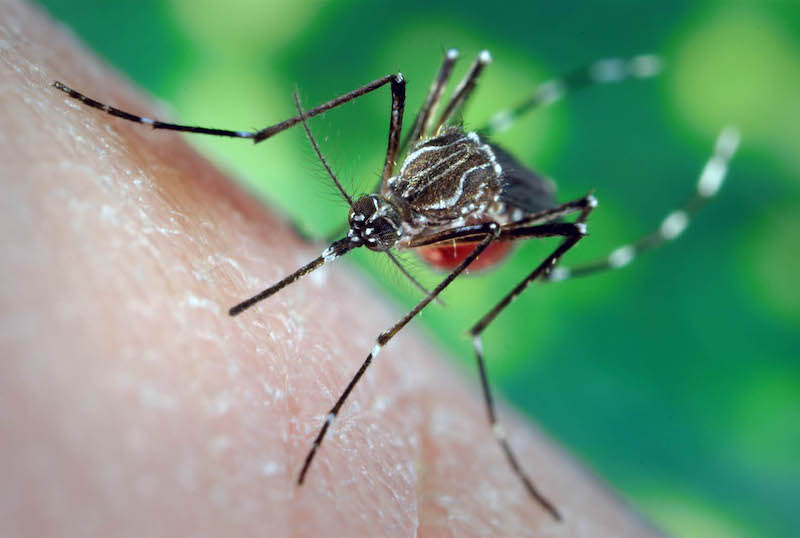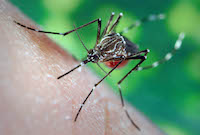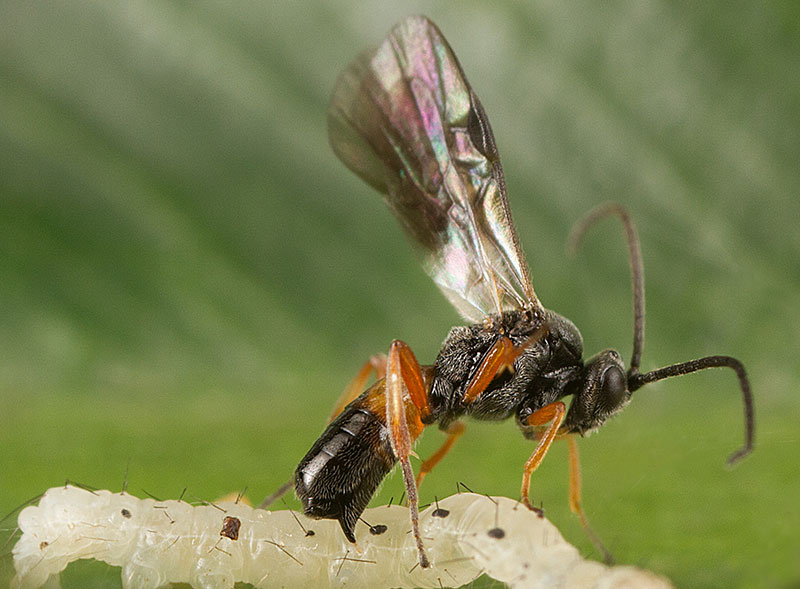With warmer temperatures around the corner, Georgia’s mosquito season won’t be far behind.
Each year, entomologists and public health officials urge Georgians to help keep the state’s mosquito population in check by eliminating mosquito habitats from their yards.
This year the remote chance of a southeastern U.S. outbreak of Zika — a mosquito-borne virus now prevalent in parts of South America — has them doubling down on their message.
“Mosquitoes aren’t active in Georgia yet, but it’s not too soon to start eliminating containers that collect water and getting into the habit of dumping them out,” said Eric Jens, a risk communicator with the Georgia Department of Public Health.
There’s a limited risk of a large-scale outbreak of Zika here, but further reducing that risk requires only basic mosquito control practices. Eliminating standing water and trimming back vegetation will reduce populations of nuisance mosquitoes this summer as well as disease-transmitting species, making outdoor spaces more pleasant for summer evenings to come.
“I would advise caution. People need to be aware that standing water produces mosquitoes and that mosquitoes can transmit diseases that are preventable,” said Elmer Gray, an entomologist with University of Georgia Cooperative Extension. “Everyone needs to work to eliminate standing water, make sure their screens are intact this spring, use Environmental Protection Agency-approved mosquito repellents according to their directions and wear light-colored, loose-fitting clothes to minimize exposure.”
The risk may be small, but why risk it?
The mosquito that is known to carry Zika — Aedes aegypti — is very rare in the state. A small population is found in Columbus, Georgia, each year and a few random specimens have been found in Savannah, Georgia, Gray said. That, in addition to the relatively low numbers of travel-related cases diagnosed among Georgians so far, means the chance of a large-scale outbreak here is low, according to Gray.
The availability of clean drinking water from wells or city systems is also a huge factor. Areas where the Zika virus is most common often do not have clean drinking water and, as a result, people store water in drums and large containers outside. These storage containers become larval habitats for the mosquitoes that transmit disease. Coupled with no screens on the windows, the conditions are ideal for disease transmission.
Eliminating larval habitats, where possible, is the key to reducing populations and cannot be stressed enough.
Mosquitoes need standing water to reproduce, so eliminating sources of standing water in yards and landscapes will go a long way in knocking down populations locally, Gray said.
“You need to be diligent about getting outside and dumping all of those containers out because that’s the biggest source of habitats around our homes,” Gray said. “Here in north Georgia, our biggest mosquito problems are the ones we grow ourselves.”
Be on the lookout for abandoned planters and flowerpot saucers, mop buckets, toys, overturned flying discs, discarded cups and anything that can hold water.
Larvicidal briquettes are available to treat water gardens, rain gardens, clogged drainage ditches or any other permanent landscape feature that holds water for more than a week.
Keeping grass trimmed and the vegetation around the borders of lawns cut back can also help reduce the areas where adult mosquitoes hide during the heat of the day, Gray said.
Mosquitoes are most active at dawn and dusk, so people may want to stay inside during those times to avoid being bitten. Gray also recommends checking, repairing and replacing window screens at this time of year to keep mosquitoes from making their way inside.
Wearing light-colored clothing will help keep mosquitoes at bay, but the most effective thing people can do to protect themselves is to use insect repellent whenever they’re outside in a mosquito-prone area, like on a ball field, out in the yard or out in the woods, Gray said.
There are several commercially available, EPA-approved repellents, like picaridin, lemon eucalyptus oil and IR3535. Gray prefers products with DEET because they have been tested and proven safe for children as young as 2 months old.
“Products containing DEET are still the best choice for young children,” Gray said. “When treating children, an adult should apply the repellent to his or her hands first and then rub the repellent onto the child’s exposed skin, but never to a child’s hands.”
Small children have a habit of sticking their hands in their mouths, and if they apply products themselves, there’s a good chance they’ll ingest some of it, he added.
For more information about mosquito control, search the UGA Extension publications website for stinging and biting pests at extension.uga.edu/publications and the Georgia Department of Health’s website at dph.georgia.gov/zika-virus-faq.








